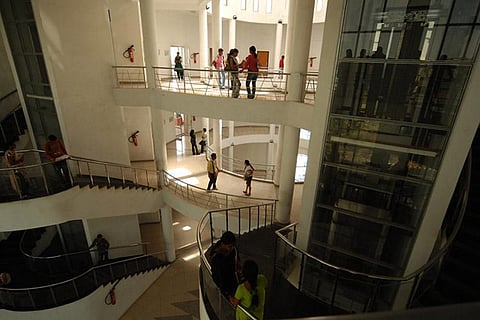

The Delhi High Court has directed Jawaharlal Nehru University (JNU) to prepare a new roster for around 208 vacant teaching positions after the administration failed to prove that it had correctly recast the reservation rosters. As a result of the wrong roster, around 30 posts for professors and associate professors, reserved under SC and ST categories, had not been advertised under the appropriate category by the university during its recruitment process, effectively denying them their reserved status.
JNU had published two advertisements in August 2019, showing a total of 257 teaching positions in the Professor and Associate Professor positions for direct recruitment. Of these 257 advertised posts, only 57 were mentioned under the SC and ST categories. However, the university records of vacant teaching positions showed that there were actually 94 SC/ST category positions under these cadres in 2017. As of February 2020, this number was 91.
A petition was filed in Delhi HC by two assistant professors at JNU, challenging the advertisements. The verdict in the matter by a single bench of the court found that the university had failed to prove that its reservation rosters were correctly recast or reissued. In November 2020, in the first order in the case, the court had quashed the August 2019 advertisements only with respect to the two posts concerning the two petitioners. The order from November stated, “It is obvious that the petitioners are confining their claim only to the two posts in the impugned advertisement and there is no reason why the entire advertisement should be quashed.”
One of the contended posts was that of an associate professor at the Centre for Informal Sector & Labour Studies, School of Social Sciences, which had been converted from an SC to ST post. The second was the post of a professor at the Centre for Inner Asian Studies (Tibetan & Himalayan Studies), School of International Studies, reserved for an ST candidate, which was advertised as an unreserved post. The court had also directed JNU to reexamine and recast the roster points only with regard to these two posts.
An appeal was filed challenging the limited verdict, seeking extension of the relief to all advertised posts. The Delhi High Court then modified the single bench judgement, directing JNU to recast the entire roster for all the posts, in its verdict on January 11, 2021.
However, the university has informed the court that 49 out of the 257 posts have already been filled up, and the court has said that these appointments will not be affected. The revised roster will therefore include the 208 advertised posts which are yet to be filled. Once the roster is corrected while adhering to the post-based reservation system, accounting for backlog vacancies as well, the advertisement for those posts where mistakes are found will stand quashed.
According to Advocate Maanav Kumar, one of the lawyers who represented the petitioners in the case, JNU’s previous reservation rosters now under contention revealed that the university had ignored certain rules concerning the post-based roster system.
According to a DoPT’s (Department of Personnel and Training) Brochure on Reservation For SC, ST & Other Backward Classes in services, when a sufficient number of suitable SC/ST/OBC candidates are not found to fill up the vacant posts reserved for them, these posts cannot be filled by candidates from other communities. The document says that “there is a ban on de-reservation of vacancies reserved for SCs, STs and OBCs in direct recruitment.”
The vacancies must remain unfilled, treated as ‘backlog vacancies’, and must be announced in the next recruitment year as a distinct group from the remaining vacancies. These backlog vacancies must continue to be advertised under the reserved category for all subsequent recruitment years, until they are filled by the candidates of that particular category. In case of a post reserved for an SC candidate, the post must continue to be advertised under the SC category until it is filled. Its status can only be changed to ST/OBC/unreserved once it is filled by an SC candidate and then becomes vacant again.
By violating this backlog rule and advertising unfilled SC/ST posts under different categories, the number of SC/ST teaching posts fell from at least 91 (which were all backlog posts) to 57, in the recruitment advertisement.
The single bench verdict by Justice Jyoti Singh in November had said that the reservation rosters must be “post-based and there cannot be exchange of reservation points or de-reservation.” De-reservation is only allowed only in “very exceptional cases”, through a “very rigorous process,” the judgment said.
On several occasions in the past, similar allegations have been made against the JNU administration, over favouritism and violations in various appointments. In November, eight professors of the School of Physical Sciences in JNU wrote to President Ram Nath Kovind, alleging that candidates without requisite experience and qualifications were being hired in various positions. It has also been alleged that norms of seniority were ignored in making appointments to chairpersons and deans, who are involved in key decisions making processes and are part of selection committees in the recruitment process. Both JNUTA (JNU Teachers’ Association) and JNUSU (JNU Students' Union) have alleged that the university administration under Vice Chancellor M Jagadesh Kumar have favoured loyalists in appointments, affecting major administrative decisions in the university.
The VC’s contentious five-year term was set to end on January 26. However, the Union Ministry of Education has reportedly extended his term, allowing him to continue in the office until his successor is appointed.